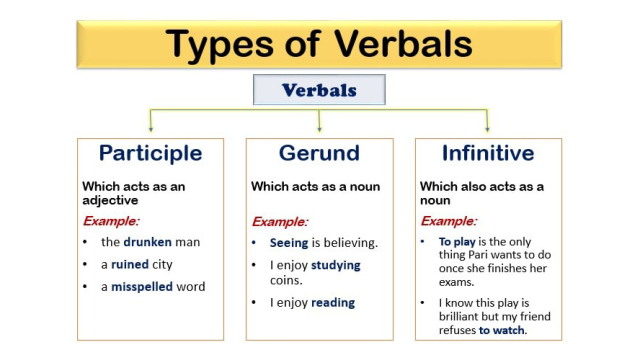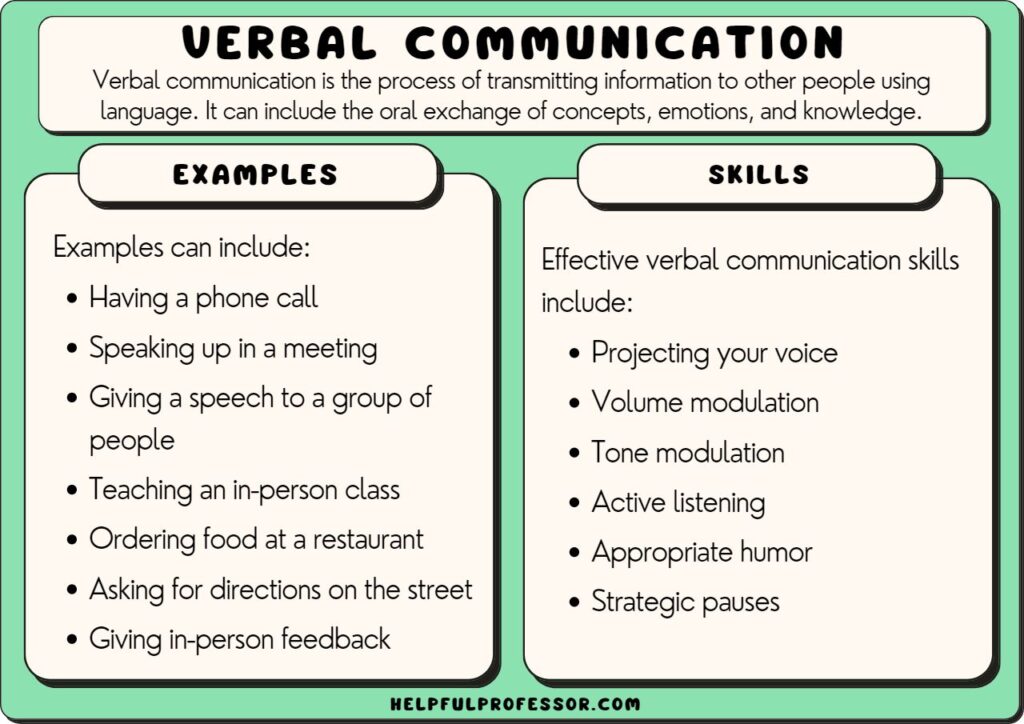Verbal Hairy Dad Tells Hookup He's Gonna Nut Inside - What It Means
It's almost like, sometimes, a string of words can really catch your eye, isn't that so? When you come across a phrase that seems to paint a picture, even a rather vivid one, it often makes you stop and think about what each part of it truly points to. We often use language to describe people, actions, and even very specific moments, and the way those words come together can tell us a lot about the message being sent, or perhaps, the vibe being given off.
You know, words are pretty powerful tools, actually. They help us share thoughts, make requests, and just generally connect with other people. Whether we're speaking out loud or putting things down on paper, the words we pick carry meaning. It's about how we put those bits of language together to form a complete idea, making sure our message gets across clearly, or at least in a way that someone else can get a sense of.
So, when we look at a phrase like "verbal hairy dad tells hookup he's gonna nut inside," it's a bit of a mouthful, isn't it? But if we take a moment to pull it apart, we can really see how the individual pieces of language contribute to the overall picture. It's all about how words, you know, shape our ideas and how we talk about things, especially when it comes to describing folks, their connections, and what they might express.
Table of Contents
- What Does "Verbal" Really Point To?
- How Does Grammar Play a Part in "Verbal" Expressions?
- How Do Words Shape a "Verbal Hairy Dad" Persona?
- Unpacking the "Tells Hookup" Part - What's Being Said?
- What's Being Communicated When a "Verbal Hairy Dad" Speaks?
- Why Do We Notice "Verbal" Communication So Much?
- How Do "Verbal" Descriptions Help Us Picture a "Hairy Dad" Scenario?
- The Power of Spoken Declarations and Their Impact
What Does "Verbal" Really Point To?
When we talk about something being "verbal," we're basically saying it has to do with words. It's about language, whether we're speaking it or writing it down. So, a "verbal" statement is one that uses words, plain and simple. It's how we express ourselves using our voices or by putting marks on a page. You see, the whole idea of "verbal" points to the very way we communicate using our ability to form words and talk. It's really about the very fabric of how we share thoughts and ideas with one another, making it possible for us to get our points across, or just, you know, chat.
It's not just about what we say, but also how the words themselves are built. In grammar, for instance, a "verbal" can be a word that looks like a verb but actually plays a different role in a sentence. It might act like a name for something, or describe something, or even explain how something is done. This means the word is derived from a verb but doesn't do the job of a verb in that particular spot. It's a bit like a chameleon, changing its function depending on where it sits in a sentence. So, in some respects, "verbal" covers a lot of ground when it comes to language and how we put it to use.
How Does Grammar Play a Part in "Verbal" Expressions?
So, there are three main kinds of these special verb forms that don't act like typical verbs. You have what are called gerunds, which are verb forms that finish with "-ing" and work like a naming word. For example, "running" in "Running is good exercise" acts as the subject, the thing we are talking about. Then there are participles, which also sometimes end in "-ing" (present participles) or often "-ed" (past participles), and they typically describe things. Like, "the running water" or "the broken toy." They give us more detail about a noun, which is pretty useful, actually.
- Ymone Sanders
- Alex Irle
- Burke Landscape Supply
- Used A Bit Pawn
- %EA%B3%A8%EB%95%8C%EB%A6%AC%EB%8A%94 %EC%BB%A4%ED%94%8C
And then, you have infinitives. These are usually the word "to" followed by a verb, like "to run" or "to think." They can do a few different jobs in a sentence, sometimes acting like a naming word, sometimes describing, and sometimes even showing how something is done. So, when we talk about a "verbal" in grammar, we're really looking at how these verb-like words step outside their usual roles to help build up the meaning of a sentence. It's just a way words can be quite flexible, wouldn't you say?
How Do Words Shape a "Verbal Hairy Dad" Persona?
When we hear the phrase "verbal hairy dad," it immediately brings to mind someone who not only has a certain physical appearance – perhaps a bit rugged or older, given the "hairy dad" part – but also someone who uses words in a particular way. The "verbal" here suggests that this individual expresses themselves, perhaps quite directly or with a certain confidence. It implies that their way of speaking, their choice of words, is a notable part of who they are. It's almost as if their words define a significant aspect of their character, or at least, how they present themselves to others.
This kind of description, you know, where we combine a physical trait with a communication style, helps us picture a specific kind of person. A "hairy dad" might be seen as someone with a certain life experience, perhaps a bit gruff but maybe also comforting in their presence. Adding "verbal" to that means their spoken interactions are key to their identity in this context. They don't just exist; they express. They might use their voice to assert, to guide, or to make their intentions very clear. It’s a way of saying their spoken contributions are a big part of their overall presence, which is really quite interesting when you think about it.
Think about how people use words to show who's in charge, or to just make their point known. Sometimes, you see, words can be used to dominate a conversation or a situation. The "verbal" part of a "hairy dad" could point to someone who is not shy about speaking their mind, someone whose words carry weight, or who uses language to guide interactions. It's about the active use of language to shape an encounter, or to just make sure everyone knows where things stand. It's almost like their speech is a key part of their whole vibe, if that makes sense.
Unpacking the "Tells Hookup" Part - What's Being Said?
Now, let's look at the "tells hookup" part of our phrase. The word "tells" is very straightforward, isn't it? It means to communicate something using words. It's an act of sharing information, making a statement, or giving instructions. So, when someone "tells" another person something, they are using verbal communication to get a message across. It's a direct form of expression, really, where one person conveys thoughts or intentions to another, which is a pretty common thing we do every single day.
And then there's "hookup." This word, typically, points to a casual meeting or a temporary connection between people. In such situations, verbal communication still plays a very important part. People might talk to set things up, to express their desires, or to just generally interact. So, the "tells hookup" part means that this "hairy dad" individual is using words to communicate something to someone they are having this kind of casual interaction with. It's about the exchange of spoken information within a specific type of social connection, which, you know, happens all the time.
The act of "telling" is a very active use of language. It's not just thinking something; it's putting it out there for another person to hear and understand. In the context of a "hookup," these verbal exchanges can be about setting expectations, expressing feelings, or, as we see in the full phrase, stating a very direct intention. It's the moment where unspoken thoughts become spoken words, shaping the nature of the interaction. It's pretty much how we make our wants known, or just clarify things, right?
What's Being Communicated When a "Verbal Hairy Dad" Speaks?
The final part of the phrase, "he's gonna nut inside," is a very direct and clear verbal statement of intent. It's an expression of a very specific desire or plan. This is where the "verbal" aspect truly shines, as it's the spoken declaration itself that carries the weight of the message. The "hairy dad" isn't just thinking this; he's putting it into words, making it known to the "hookup." This kind of direct verbal expression leaves very little room for guesswork about what is being communicated, or what the speaker intends to do, which is, you know, pretty straightforward.
This kind of statement, you see, is a form of verbal expression that conveys a strong intention. It's similar to how someone might state an agreement, or share a very personal thought. The power here comes from the act of saying it out loud. It's not just an idea floating around; it's a solid, spoken declaration. In many contexts, people use such direct language to make their desires known, or to simply lay out what they plan to do. It’s pretty much the clearest way to get a message across, wouldn't you say?
Consider how words can sometimes be used to assert dominance or to make one's position very clear. The source text mentions "verbal domination" in other contexts, and while we're not adding new context, we can observe that a very direct statement of intent, like "he's gonna nut inside," can certainly be a powerful form of verbal communication. It leaves no doubt about the speaker's aim. It’s a way of using language to, well, really get your point across, and perhaps even to control the flow of the interaction, which is something words can actually do.
Such a phrase, when spoken, becomes a key part of the interaction. It's an act of communication that shapes the moment, making the speaker's intentions undeniably clear to the listener. It's a prime example of how language, in its most direct form, can be used to convey a specific outcome or desire. This isn't a subtle hint; it's a full-on verbal declaration, which, you know, often has a very particular kind of impact on a situation.
Why Do We Notice "Verbal" Communication So Much?
We tend to pay a lot of attention to verbal communication because it's our main way of sharing complex ideas and feelings. When someone speaks, we don't just hear sounds; we process the words, the tone, and the message they carry. This is why "verbal skills" are often talked about – they're about how well someone can use words to express themselves clearly and effectively. It’s how we make sense of the world around us, and how we tell others what’s on our minds, which is really quite a fundamental human thing.
The impact of words is pretty big, actually. A single phrase can set a mood, define a relationship, or even change the course of an interaction. This is why a "verbal" statement, especially one as direct as "he's gonna nut inside," stands out. It's not just background noise; it's a pointed piece of communication designed to convey a very specific intent. It's almost like words have a special kind of weight, don't they, especially when they're used to express something so personal or direct?
Our ability to use and understand words is central to how we interact. We rely on verbal cues to figure out what people mean, what they want, and how they feel. So, when a "verbal hairy dad" makes a statement, the "verbal" part means we are dealing with direct, spoken language that aims to communicate something specific. It's how we navigate our daily connections, more or less, by listening to what people say and trying to get a sense of their meaning.
How Do "Verbal" Descriptions Help Us Picture a "Hairy Dad" Scenario?
Even simple descriptive words, like "hairy" or "dad," are verbal cues that help us form a picture in our minds. When combined, they create a kind of character or a specific image. The word "hairy" gives us a visual detail, while "dad" suggests a certain age or role. These are all parts of the verbal landscape that we use to understand who someone is, or what they might be like. It's pretty much how our brains build up a scene from just a few bits of information, you know?
So, when we hear "verbal hairy dad tells hookup he's gonna nut inside," each word, even the descriptive
- Katie Couric Naked
- Conor Mcglynn
- Asmr Gone Wild
- %D8%B3%D9%83%D8%B3%D9%8A %D8%B7%D9%8A%D8%A7%D8%B2 %D9%83%D8%A8%D9%8A%D8%B1%D9%87
- Ambs Official Onlyfans Leak

Verbals · English grammar exercise (advanced level) | bitgab

36 Verbal Communication Examples (2024)

What is Verbal Communication: Examples, Types & Functions